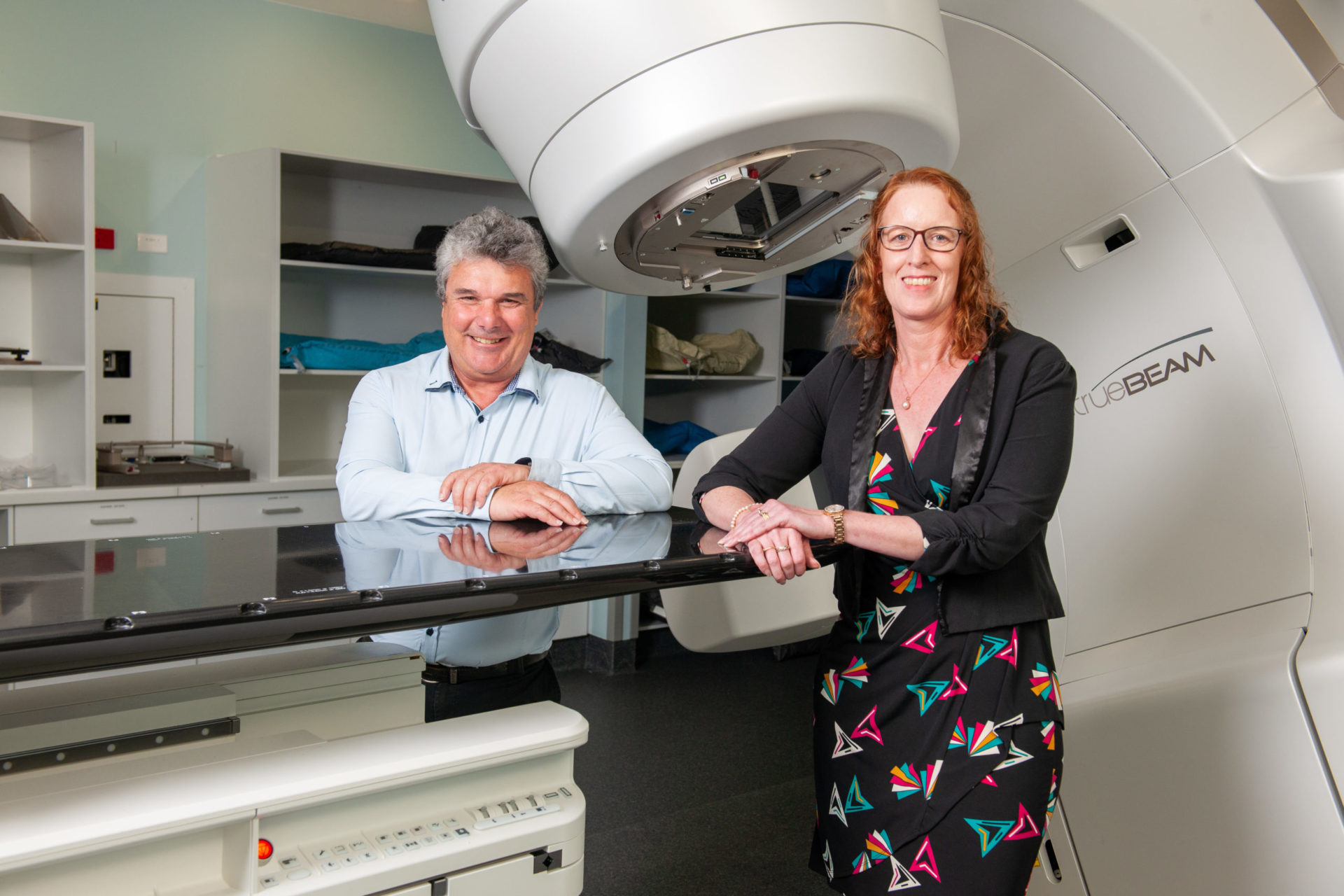
Your doctor or oncologist may suggest your suitability for a TROG Cancer Research clinical trial. Alternatively, you can find out about clinical trials yourself and take the information to your doctor to discuss your suitability further. Visit the upcoming trials section of this website, then click on the area of the body that applies to you (e.g. lung, prostate, head).
Our currently open trials are listed under each section. As you visit each trial page, you can click on ‘Current Participating Centres’ to find the closest cancer treatment centre to you that is participating in the study.
If you would like more information from TROG Cancer Research, please feel free to phone or email the Trial Coordinator listed on the trial page.
Many patients choose to participate in clinical trials for the following reasons:
If there is a clinical trial underway that matches your diagnosis there is an opportunity for you to participate in the most current medical treatment and/or technology associated with improving the treatment of your disease, which may result in a better outcome for you as an individual.
As a patient participating in a clinical trial, you will receive additional review and monitoring of your treatment.
Due to the quality assurance required for the scientific credibility of a clinical trial, you will receive additional review and monitoring of your treatment, as well as more extensive follow up than would be required if you were given a standard treatment outside of a clinical trial.

Clinical trials run for a certain amount of time and participation could range from a few weeks to several years. As a participant, you are expected to attend clinic visits and undertake specific medical tests. You may also be required to complete questionnaires regarding the side effects of your treatment and your general wellbeing.
Every trial will have varying requirements for participation, and this information can be sought from the relevant Trial Coordinator.
Being treated for cancer can be an overwhelming experience. Additionally, participating in a clinical trial requires much consideration, and may not be for everyone.
If you are interested in taking part in a clinical trial or would just like to find out more, you are encouraged to first speak to your doctor. They will discuss your options and provide you with the information you need to help you make an informed decision. Participating in clinical trials is completely voluntary and you can choose to withdraw at any time.
The conduct of a cancer research trial requires the support of many doctors and other experts, hospitals and cancer treatment centres, ethics committees, funding bodies and most importantly, patients.
TROG Cancer Research also has quality controls to help ensure good clinical practise in conducting clinical trials. Specifically, a TROG Cancer Research trial cannot proceed without the endorsement of the TROG Cancer Research Membership and the TROG Scientific Committee.
This provides assurance that the trial is supported by a consensus of a large representative group of radiation oncologists as well as other health professionals and has been reviewed in detail by experts who comprise the Scientific Committee.
Another important assurance for patients is that the ethical and legal codes associated with the conduct of cancer research trials in Australia and New Zealand are strict and adhered to. TROG Cancer Research’s approach to these issues is thorough and rigorous.
All TROG Cancer Research trials must be reviewed by the ethics committees of the participating hospitals. Ethics committees are made up of doctors, scientists, clergy, and laypeople, who must approve the start and continuation of all cancer research trials at their hospital.
Confidentiality and privacy are of the utmost importance. Trial documents are de-identified and personal details are not disclosed in any report from the trial.
Your participation in a clinical trial will help researchers identify the best treatments for future patients. However, your participation in a clinical trial does not guarantee that you will receive any direct benefits.
Involvement in a TROG Cancer Research trial is an assurance that you are involved in a project that is well researched and supported and is at the forefront of expert opinion on how to improve treatment of your particular disease. You are therefore involved in an important process, which may provide a direct benefit for you, as well as future patients with your disease.
There are several stages in the clinical trial process; before, during and after recruitment.
A new trial concept, protocol synopsis or full protocol is submitted to the TROG Cancer Research Scientific Committee (TSC) for consideration of presentation and subsequent voting by the TROG Cancer Research Membership at the TROG Cancer Research Annual Scientific Meeting (ASM). Commencement: New Proposal application form received at TROG Cancer Research's Central Operation's Office (TCOO) Conclusion: New Proposal approved for development.
This phase commences when a new proposal has received the endorsement of TROG Cancer Research Membership at the TROG Cancer Research ASM and is approved for development by the TSC. Commencement: New Proposal approved for development. Conclusion: Trial approved for site activation to commence.
This phase commences when a trial in development has met the ten TROG Cancer Research trial development milestones to the satisfaction of the TSC and given permission to commence site activation processes. A TROG Cancer Research number will be allocated at the commencement of this phase. Commencement: Trial approved for site activation to commence. Conclusion: Activation of first trial site.
A trial is considered as open (to accrual) when the first trial site has submitted all required regulatory and ethical documentation and has been approved for activation by the Trial Coordinating Centre. Commencement: Activation of first trial site. Conclusion: Accrual of last patient.
A trial is considered closed to accrual after the last patient has been recruited. During the closed phase, patients will complete follow up, the main analyses will occur, and processes implemented to complete the trial. Commencement: Accrual of last patient. Conclusion: Official notification from the TROG Cancer Research Scientific Committee indicating that trial is considered completed.
A trial is completed when the final follow-up has occurred, the trial database has been locked, all analyses have been performed and published, trial sites have been closed, and records archived.
Interested in participating in one of our current or upcoming trials? We’d like to hear from you!
For over 30 years, Trans-Tasman Radiation Oncology Group has been dedicated to improving the way radiation medicine is delivered to cancer patients with ongoing scientific research, clinical trials, and cutting-edge technology.
Latest News
Keep up to date with TROG news, subscribe to our community newsletter.
ABN: 45 132 672 292